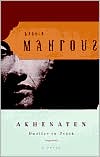Category Books
- Fiction Books & Literature
- Graphic Novels
- Horror
- Mystery & Crime
- Poetry
- Romance Books
- Science Fiction & Fantasy
- Thrillers
- Westerns
- Ages 0-2
- Ages 3-5
- Ages 6-8
- Ages 9-12
- Teens
- Children's Books
- African Americans
- Antiques & Collectibles
- Art, Architecture & Photography
- Bibles & Bible Studies
- Biography
- Business Books
- Christianity
- Computer Books & Technology Books
- Cookbooks, Food & Wine
- Crafts & Hobbies Books
- Education & Teaching
- Engineering
- Entertainment
- Foreign Languages
- Game Books
- Gay & Lesbian
- Health Books, Diet & Fitness Books
- History
- Home & Garden
- Humor Books
- Judaism & Judaica
- Law
- Medical Books
- New Age & Spirituality
- Nonfiction
- Parenting & Family
- Pets
- Philosophy
- Political Books & Current Events Books
- Psychology & Psychotherapy
- Reference
- Religion Books
- Science & Nature
- Self Improvement
- Sex & Relationships
- Social Sciences
- Sports & Adventure
- Study Guides & Test Prep
- Travel
- True Crime
- Weddings
- Women's Studies
Akhenaten: Dweller in Truth »

Authors: Naguib Mahfouz, Najib Mahfuz, Tagreid Abu-Hassabo (Translator), Tagreid Abu-Hassabo
ISBN-13: 9780385499095, ISBN-10: 0385499094
Format: Paperback
Publisher: Knopf Doubleday Publishing Group
Date Published: April 2000
Edition: (Non-applicable)
Author Biography: Naguib Mahfouz
NAGUIB MAHFOUZ was born in Cairo in 1911 and began writing when he was seventeen. The author of more than thirty novels and fourteen collections of short stories, he was awarded the Nobel Prize for Literature for 1988. Mahfouz lives with his family in the Cairo suburb of Agouza.
Book Synopsis
From the winner of the Nobel Prize for Literature and author of the Cairo trilogy, comes Akhenaten, a fascinating work of fiction about the most infamous pharaoh of ancient Egypt.
In this beguiling new novel, originally published in 1985 and now appearing for the first time in the United States, Mahfouz tells with extraordinary insight the story of the "heretic pharaoh," or "sun king,"—and the first known monotheistic ruler—whose iconoclastic and controversial reign during the 18th Dynasty (1540-1307 B.C.) has uncanny resonance with modern sensibilities. Narrating the novel is a young man with a passion for the truth, who questions the pharaoh's contemporaries after his horrible death—including Akhenaten's closest friends, his most bitter enemies, and finally his enigmatic wife, Nefertiti—in an effort to discover what really happened in those strange, dark days at Akhenaten's court. As our narrator and each of the subjects he interviews contribute their version of Akhenaten, "the truth" becomes increasingly evanescent. Akhenaten encompasses all of the contradictions his subjects see in him: at once cruel and empathic, feminine and barbaric, mad and divinely inspired, his character, as Mahfouz imagines him, is eerily modern, and fascinatingly ethereal. An ambitious and exceptionally lucid and accessible book, Akhenaten is a work only Mahfouz could render so elegantly, so irresistibly.
Publishers Weekly
Nobel-winning Egyptian novelist Mahfouz (The Cairo Trilogy) appropriates, to wonderful effect, the craft of the biographer in these 14 elegant fictional testimonies on the brief but dazzling reign of the "heretic" pharaoh Akhenaten and his enigmatic queen, Nefertiti. First published in Arabic in 1985, newly translated into English, the narrative comprises many subjective versions of the early religious zealot Akhenaten's rule. Twenty years after the end of his reign, witnesses, royalty and relatives recount their stories to a young nobleman's son, Meriamun, who professes a passion for unearthing the truth. The particulars of Akhenaten's reign are unquestioned: the son of the great pharaoh Amenhotep III and Queen Tiye, Akhenaten is a sickly, irreverent and spiritually inclined young man who ascends the throne when his brother dies. Inspired by religious visions, Akhenaten scorns Egypt's traditional pantheism and declares his devotion to the One and Only God. When his fervor leads him to decree that his religion shall be Egypt's creed, the pharaoh offends the all-powerful priests and invites civil dissension and foreign invasion. Eventually, he dies alone in his deserted city. Some of the narrators remain sympathetic to Akhenaten, including the heartbroken former royal sculptor Bek, who designed the shining new city of Aketaten. The High Priest of Amun, on the other hand, bitterly rues the era of the "mad king," while Ay, father of Nefertiti and former counselor to Akhenaten, diplomatically vacillates. The record culminates with Nefertiti's impassioned confession, though intentionally readers are left wondering: Which point of view are we supposed to believe? The making of history, like fiction, dwells in its infinite ramifications, and Mahfouz, ever the masterly stylist, accomplishes his lesson flawlessly. (Mar.) Copyright 2000 Cahners Business Information.|
Table of Contents
Subjects
 Fiction Subjects
Fiction Subjects  Character Types - Fiction
Character Types - FictionFiction Books & Literature
 Fiction Subjects
Fiction Subjects  Historical Figures - Fiction
Historical Figures - FictionFiction Books & Literature
 Historical Fiction
Historical Fiction  Ancient Egypt - Historical Fiction
Ancient Egypt - Historical FictionFiction Books & Literature
 Historical Fiction
Historical Fiction  Historical Characters - Fiction
Historical Characters - FictionHistory
 Historical Fiction
Historical Fiction  Ancient Egypt - Historical Fiction
Ancient Egypt - Historical FictionHistory
 Historical Fiction
Historical Fiction  Historical Characters - Fiction
Historical Characters - FictionNonfiction
 History
History  Historical Fiction
Historical Fiction
